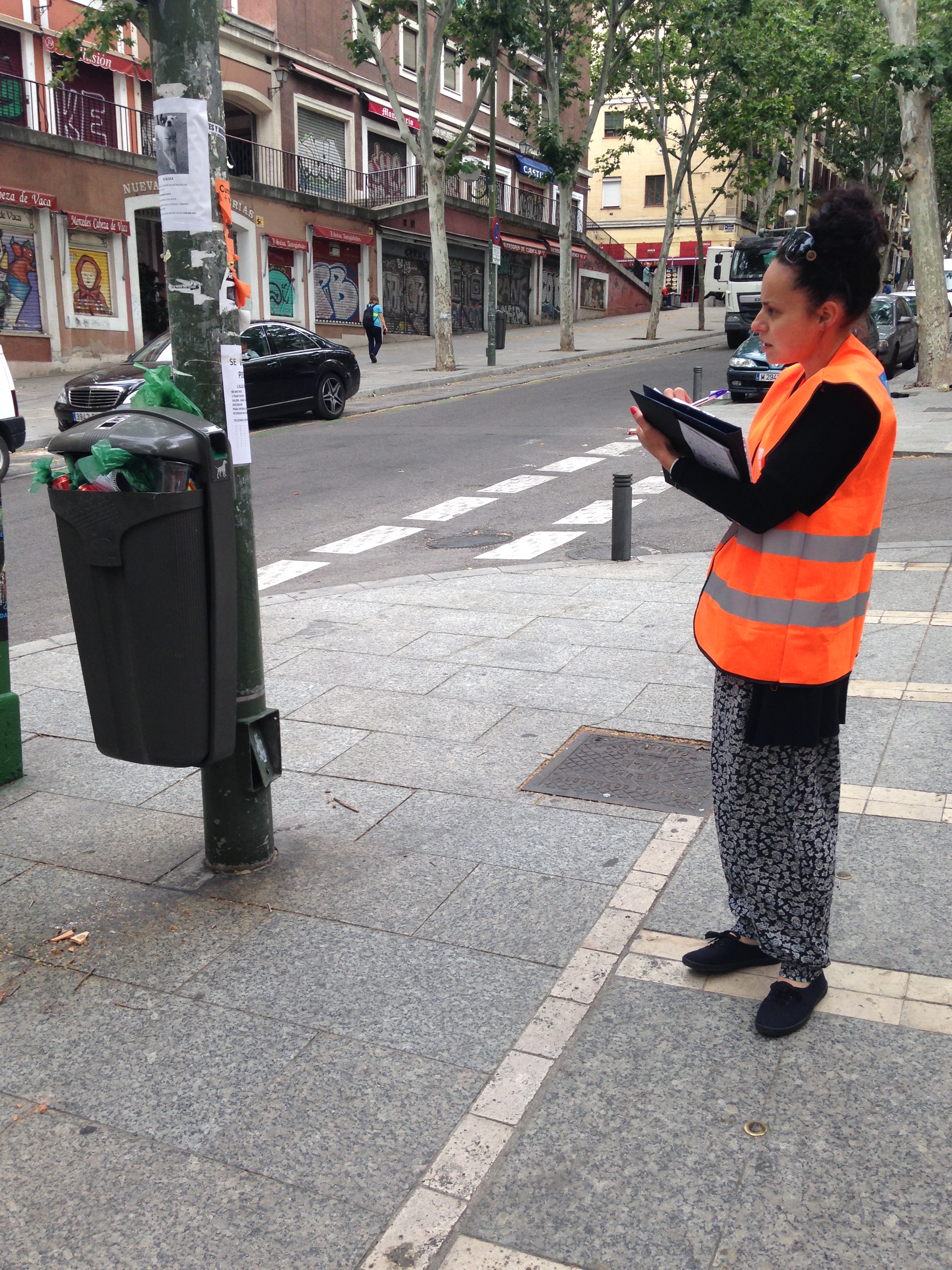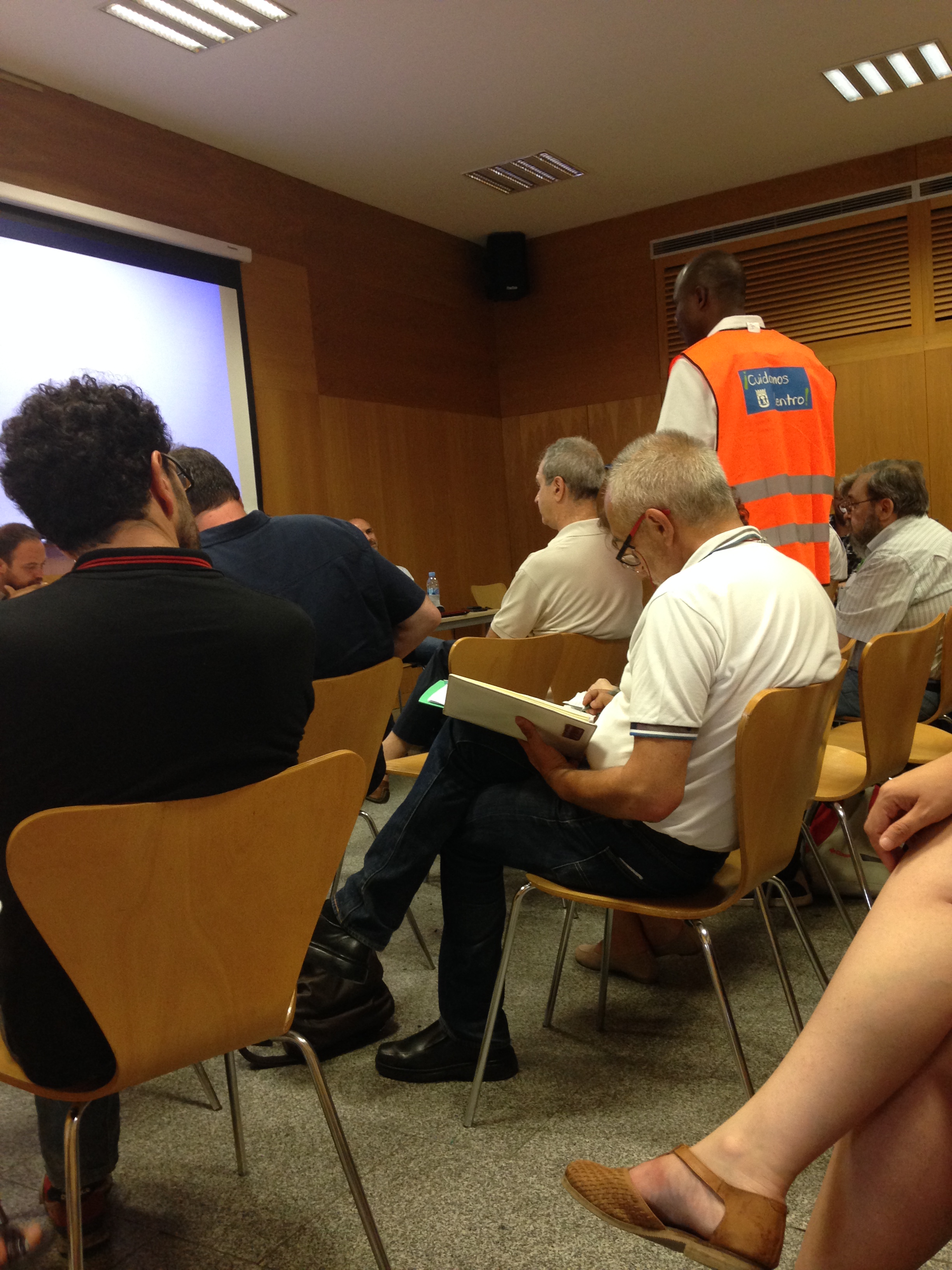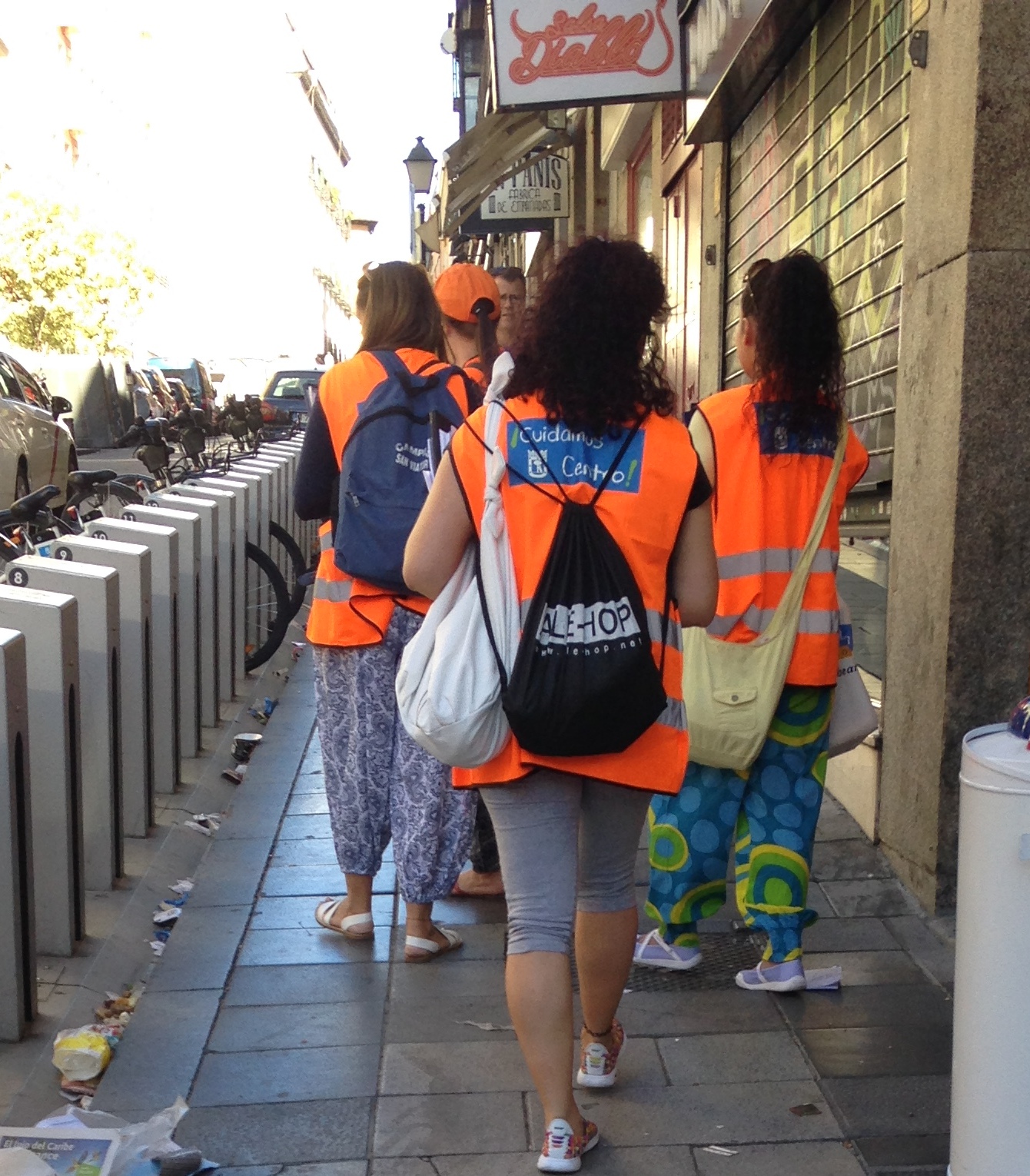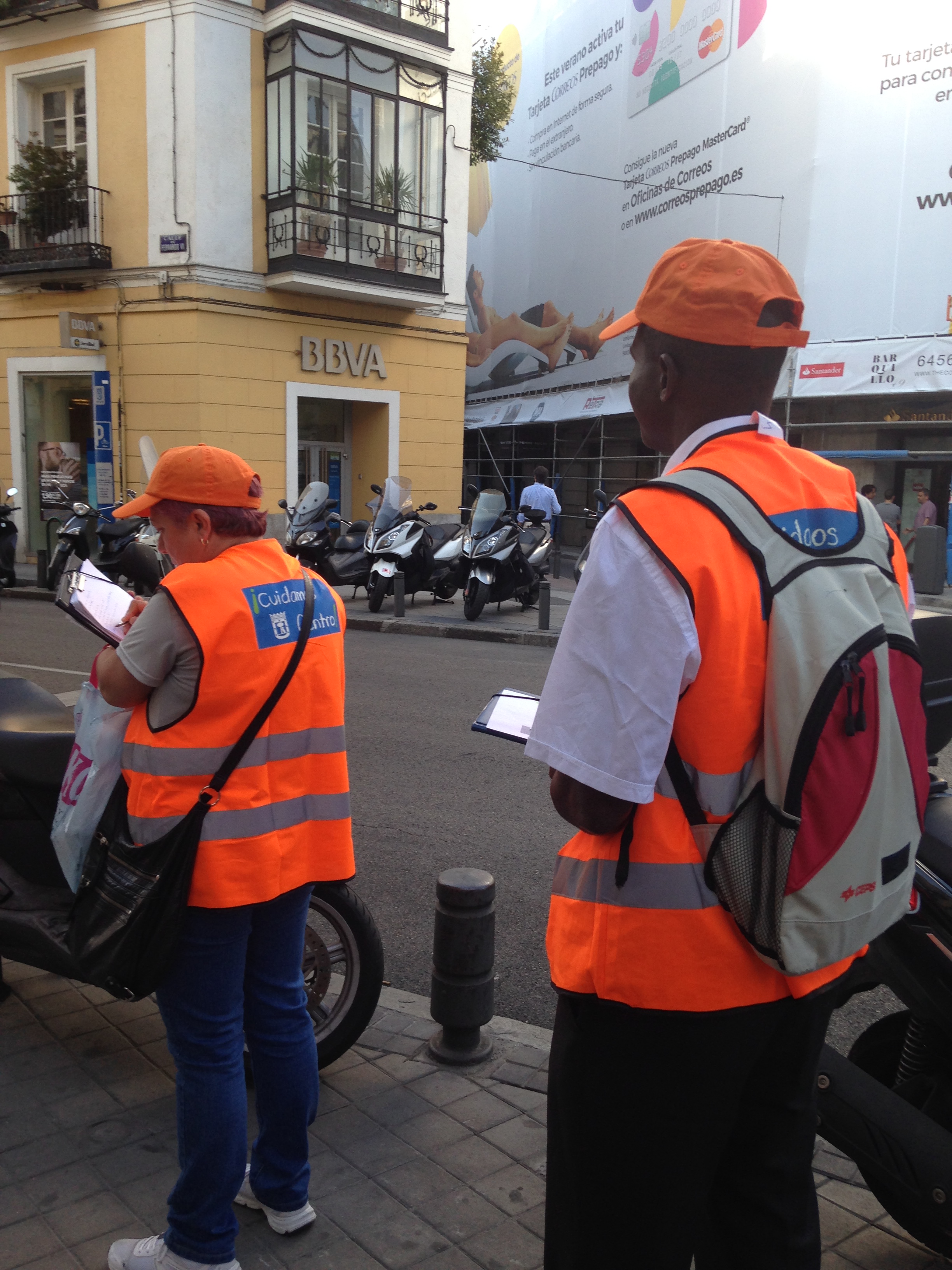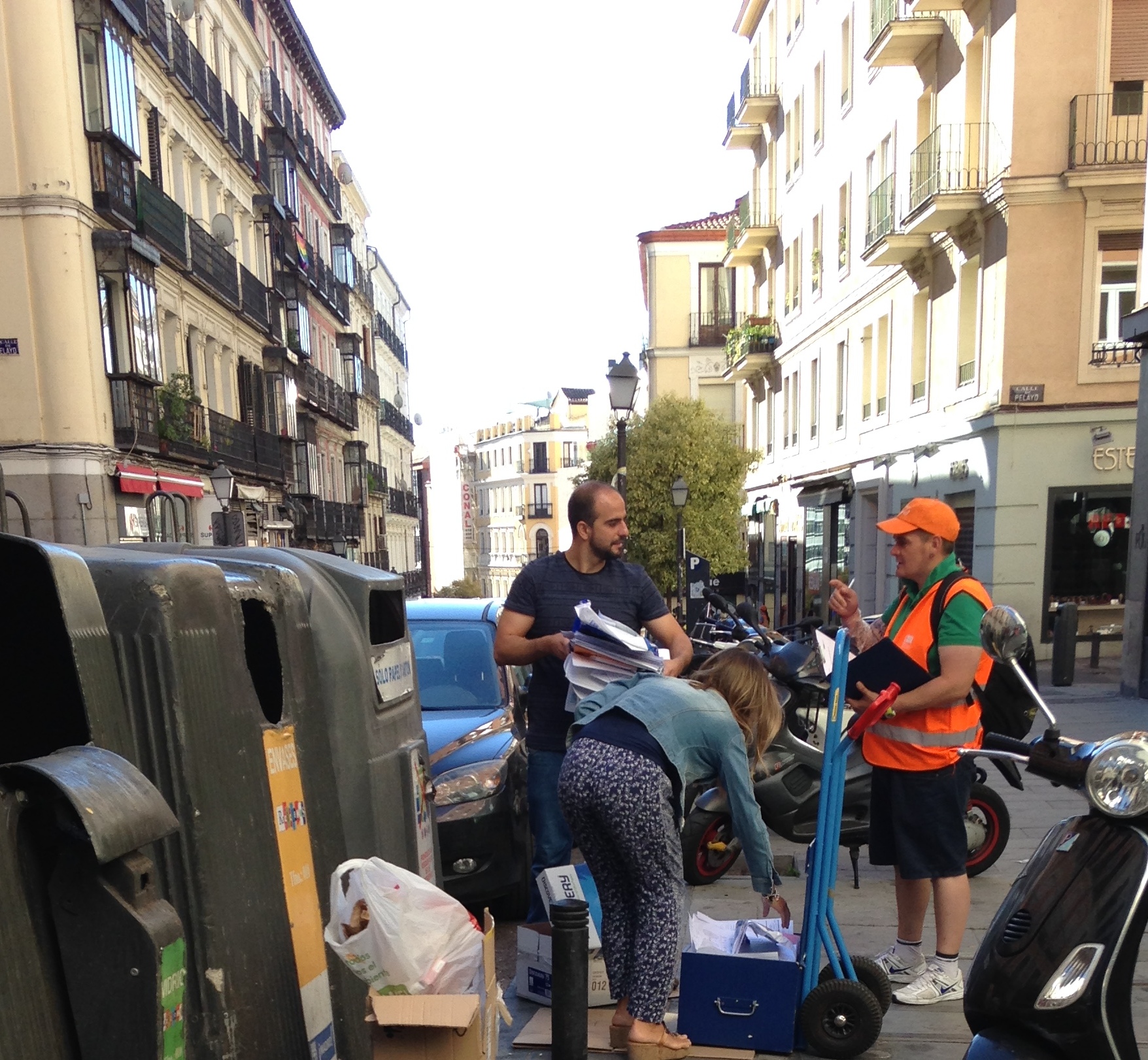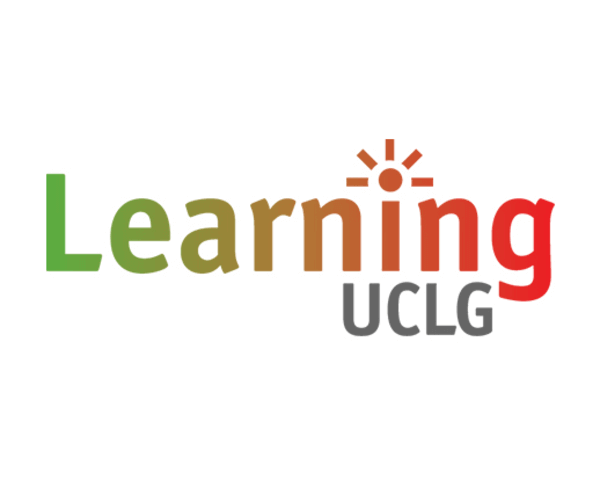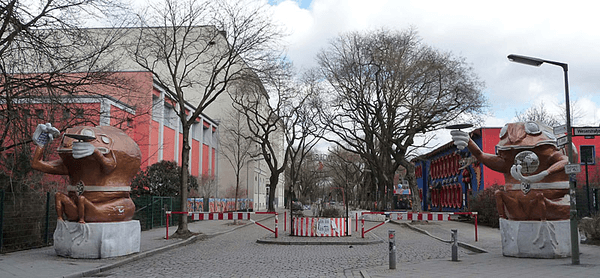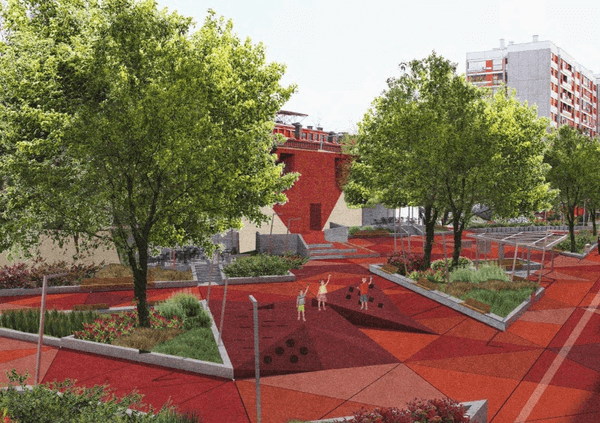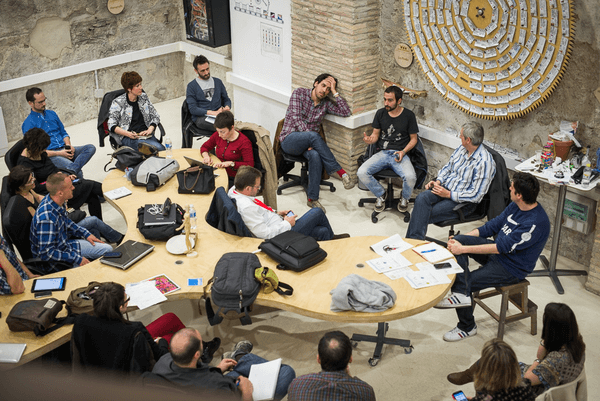City
Madrid
Main actors
Community / Citizen Group, City Government
Project area
Inner City
Duration
Ongoing since 2017
A municipal training programme that employs migrants in the role of ‘Dynamizers’ to act as mediators between the local government authority and their respective communities to promote environmental awareness.
Cuidamos Centro (‘We Take Care of the Centro District’) is a training and employment programme for citizens at risk of exclusion from the labour market and the long term unemployed. In 2017, a team of formerly-excluded job seekers (including 4 migrants) were engaged as Dynamizers to raise collective awareness in the community around the importance of waste management and environmental protection. Dynamizers act as mediators for social cohesion, using their home languages and cultures to build relationships between local government actors and the wider migrant population. They are also trained in conflict mediation and play a significant role in improving intercultural communication within the city.
This case study was developed in the framework of the Mediterranean City-to-City Migration Project (MC2CM), a project coordinated by ICMPD and funded by the European Union and the Swiss Agency for Development and Cooperation. The MC2CM project has been working since 2015 with Amman, Beirut, Lisbon, Lyon, Madrid, Tangiers, Tunis, Turin and Vienna to increase the knowledge base on urban migration. Additionally the project has sought to nurture a peer-to-peer dialogue and mutual learning on specific urban challenges such as social cohesion, intercultural dialogue, employment and provision of basic services for migrants, among others. This case study was selected by the Municipality of Madrid in order to showcase a practice that contributes to social inclusion of migrants at the local level.
This case study was contributed from the UCLG Learning Team (learning@uclg.org).
External links / documents
On Map
The Map will be displayed after accepting cookie policy

